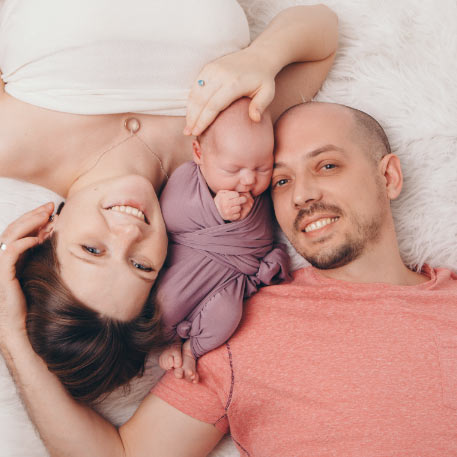In Vitro Fertilization (IVF)?
Very prevalent in the field of assisted reproductive technology, IVF is a process that helps parents with fertility problems conceive.
The IVF technique takes eggs from the mother and sperm from the father and places the samples in a test tube. The test tube creates the perfect environment fertilization. If fertilization is achieved, the embryo is placed in the woman’s womb starting a natural pregnancy.
You can perform an IVF using the sperm and eggs from someone else.

Who Can Have IVF
IVF is suitable in the following conditions;
- For women under the age of 43
- Women who have been trying to conceive for two years
- Women who had 12 cycles of artificial insemination
- Women with irregular Fallopian tubes
- Men with decreased super production
- Problems with ovulation
- Infertility for unknown reasons
IVF Procedure
IVF consists of multiple steps. The first indicates the use of fertility medication for the female to facilitate the production of eggs. Once successful, under a minor surgery, doctors extract the eggs.
The male is expected to produce a sperm sample. The two samples are merged to achieve successful fertilization. Once it’s confirmed that fertilization has been achieved, the now embryo is placed in the uterus of the woman.
IVF Side Effects
IVF is an emotional process for many patients, it is natural to feel depression and anxiety during this period. But likewise, the procedure can be stressful to your body. Most patients going for IVF experience some of these side effects;
- Bloating
- Breast tenderness
- Cramping
- Mood swings
- Bruising around injection areas
- Bleeding
IVF Success Rates
Success rates decrease as women grow older. It is estimated that success rates can peak 43% for women of ages 35 years and younger. For women over 40 success rates range around 18%
